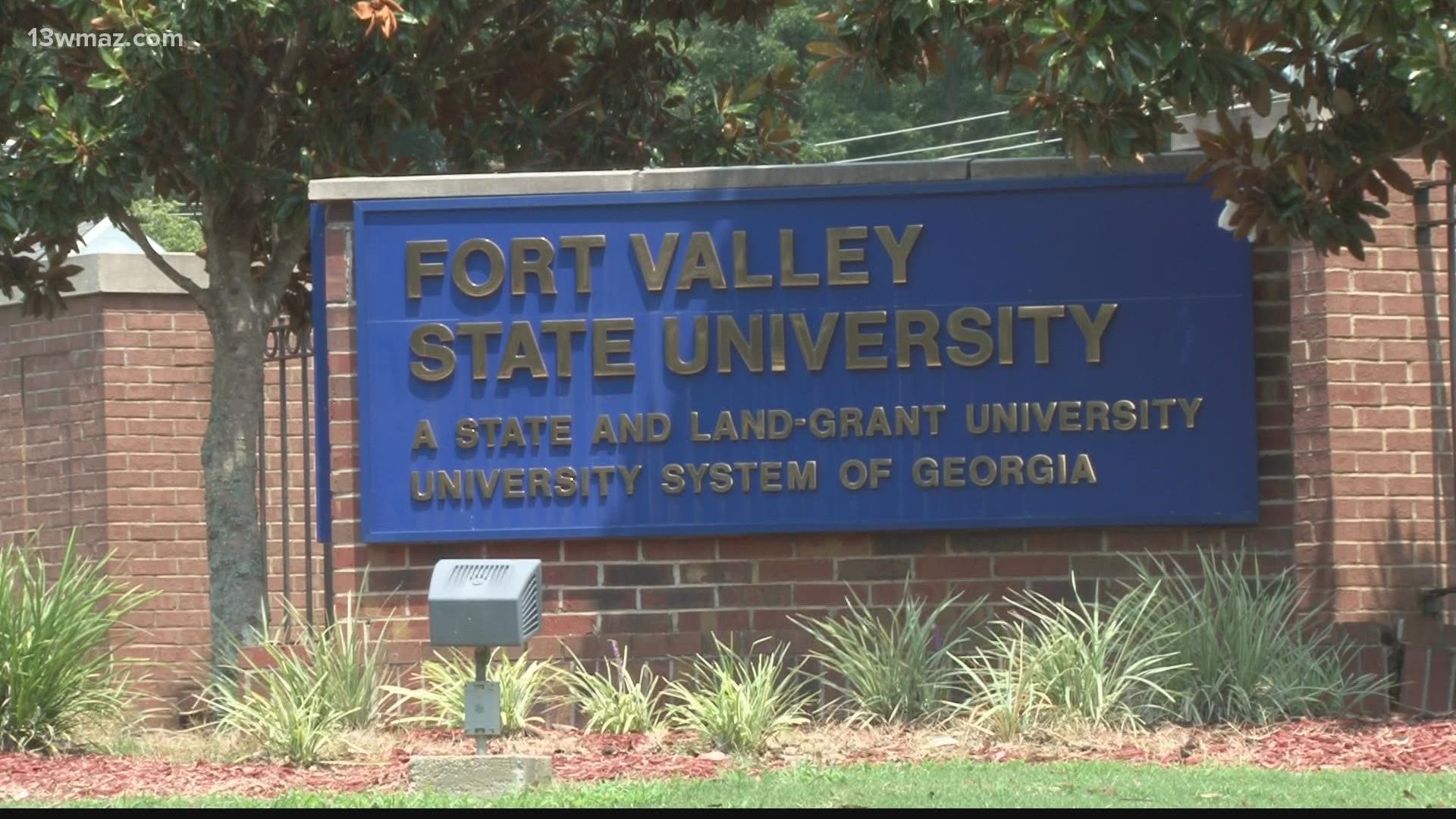FORT VALLEY, Ga. — To celebrate Black History Month, we'll be visiting locations across Central Georgia that speak to the heart and soul of the African-American community.
For the last story in this series, we visited Fort Valley State University whose ties in the community stretch back over 100 years.
FVSU was founded in 1895 as Fort Valley High and Industrial School as a means of education for the many men and women who were newly freed from the bonds of slavery.
The school was founded by 15 Black men, at least half of them being formerly enslaved, and three white men who petitioned the Superior Court of Houston County to legalize the creation of the school. It is one of the few colleges in the United States to be founded by former slaves.
Its original focus was agriculture and home economics, but as the wants and needs of students grew, the university expanded into what it is today.
“They wanted our people to do better, to have better lives and they were willing to work hard,” said Wilmetta Langston, the archivist at the university's Hunt Memorial Library.
Many of the original buildings on campus were built by the founders and community members who wanted to see the school thrive. The university has a long history of being firmly anchored in the community that surrounds it.
In 1916, graduate Otis Samuel O’Neal created the Ham and Egg Show, which encouraged farmers to produce more food to show off examples of high-quality goods. It was not only an educational opportunity for students at the then-agricultural school, but it also helped improve nutrition for Central Georgia families at the time.
Eventually, the school became known Fort Valley Normal and Industrial School and it was one of the only places that many Black teachers could attain higher education degrees in the area. The state of Georgia eventually acquired the school and it merged with State Teachers and Agricultural College in Forsyth County in 1939 to become Fort Valley State College.
This action concentrated higher-education efforts for African-Americans on the same location. This eventually became the university that is home to several thousand students every year.
“Half the families of the Southern states would not exist had it not been for the HBCUs,” said Langston.
She says the founders of the university understood that education was the key to growth.
“Look at some of the achievements of Blacks. You can see Black miracles, inventions, and we’ve not always received the credit,” said Langston.
She says the founders understood that the ability to educate generations of students who might not have received an education otherwise demonstrates the importance of Historically Black Colleges and Universities (HBCUs).
“One of the things that I like is that some of these graduates are smart. They knew that we can’t expect outside folks or other people to keep us going, we send our own back so that you have generations of people that matriculate here and graduate,” said Langston.
She is a proud Wildcat -- a graduate of the university. For her, remembering the history of the school is about carrying on a legacy.
“Wisdom, justice, moderation is on our seal. These are virtues, these are morals, you don’t attain them overnight. They have to be bred and overtime it becomes a part of us,” she said.
RELATED ARTICLES:

